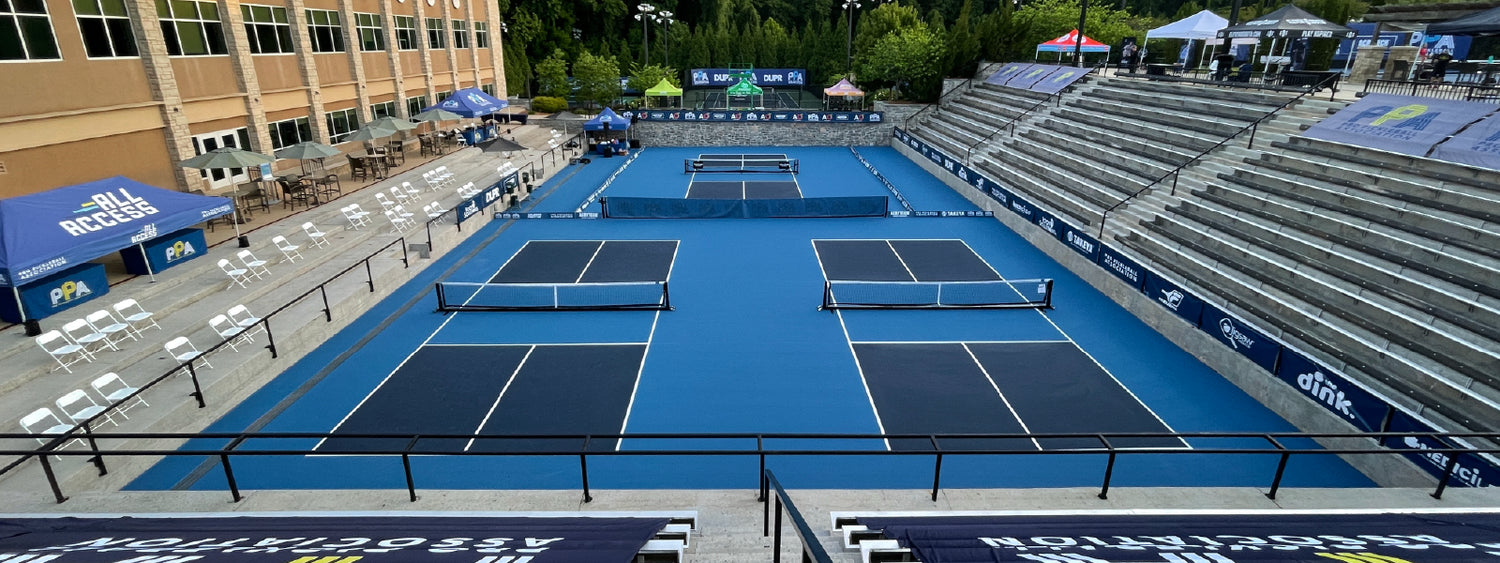Pickleball, the dynamic and rapidly growing sport, has captivated players of all ages and skill levels. Whether you're a seasoned pro or just starting out, understanding the pickleball rating system is crucial for gauging your progress, finding suitable opponents, and competing effectively. In this guide, we'll delve into the intricacies of various pickleball rating systems.
What is a Pickleball Rating System?
A pickleball rating system is a method used to categorize players based on their skill level. They allow players to compete against others of similar abilities, ensuring fair and enjoyable matches. The systems typically consist of various rating levels, ranging from beginner to advanced, with each level representing a different skill set and level of experience.
How Does a Pickleball Rating System Work?
Pickleball ratings are often determined through a combination of self-assessment, observation by peers, and performance in competitive play. While there is no universal standard for rating players, many clubs and organizations use similar rating scales to maintain consistency within their communities.
Common Rating Systems:
-
USAPA Rating System: The USA Pickleball Association (USAPA) offers a widely recognized rating system that categorizes players from 1.0 (beginner) to 5.0+ (professional). This system considers factors such as shot consistency, strategy, and court positioning. USAPA ratings, called Tournament Player Ratings (UTPR), are used in a number of major pickleball tournaments.
-
DUPR Rating System: The Dynamic Universal Pickleball Rating (DUPR) system is gaining popularity for its comprehensive approach to rating players. DUPR takes into account not only a player's skill level but also their dynamic performance in various game situations. It considers factors such as shot selection, decision-making, adaptability, and mental toughness to provide a holistic assessment of a player's abilities.
-
International Federation of Pickleball (IFP) Rating System: The International Pickleball Federation also provides a rating system, though it may vary slightly from the USAPA's. It follows a similar structure, with levels ranging from beginner to elite.
-
Local Club Ratings: Some pickleball clubs and communities develop their own rating systems tailored to their specific needs and player demographics. These systems may incorporate elements from the USAPA or IFP ratings while adding local nuances.
Importance of a Pickleball Rating System:
-
Fair Competition: By matching players of similar skill levels, the rating system ensures fair and balanced matches, enhancing the overall playing experience.
-
Skill Development: Knowing your rating allows you to set realistic goals for improvement and track your progress over time. It provides a benchmark for skill development and helps you identify areas for growth.
-
Tournament Eligibility: Many pickleball tournaments require participants to have a minimum rating to ensure a competitive field. Your rating determines which tournaments you're eligible to enter, allowing you to challenge yourself against players of similar abilities.
-
Socialization and Community Building: The rating system facilitates socialization and community building within the pickleball community. Players can easily find compatible partners for casual games or competitive matches, fostering a sense of camaraderie and belonging.
Advancing Your Rating:
Advancing your pickleball rating requires dedication, practice, and a willingness to challenge yourself. Here are a few tips to help you elevate your game:
-
Seek Feedback: Solicit feedback from more experienced players or coaches to identify areas for improvement and refine your skills.
-
Practice Regularly: Consistent practice is key to honing your skills and mastering new techniques. Dedicate time to drills, solo practice, and playing matches against varied opponents.
-
Study the Game: Watch instructional videos, attend clinics, and analyze professional matches to gain insights into strategy, shot selection, and court positioning.
-
Play Competitively: Participate in tournaments and competitive leagues to test your skills against a diverse range of opponents. Embrace the challenge and learn from both wins and losses.
Pickleball rating systems serve as valuable tools for players of all levels, providing structure, fairness, and a sense of progression within the sport. By understanding how a rating system works and actively working to improve your skills, you can elevate your game, forge meaningful connections within the pickleball community, and enjoy the thrill of competitive play. So grab your paddle, hit the court, and embark on your pickleball journey today!
~
Looking for more insightful pickleball tips and strategies? Or perhaps the perfect pickleball gift?
Be sure to explore our other blog posts for everything from beginner's guides to advanced techniques. And don't forget to check out our top-rated pickleball gifts, perfect for players of all types, both on and off the court!



